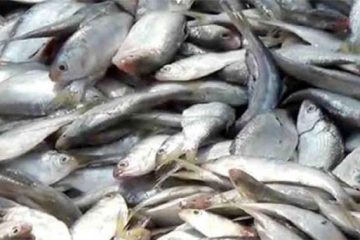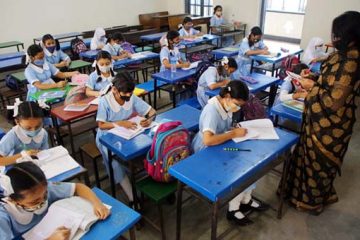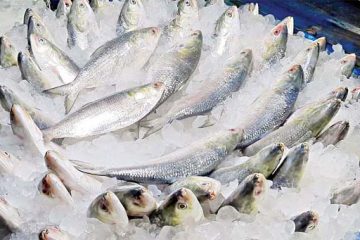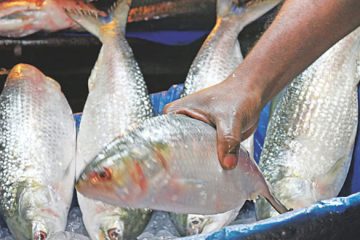The 900-tonne oil tanker that sank in the River Meghna on Wednesday might cause an environmental disaster in a vast area unless the salvage operation could be expedited, officials said.
They expressed concern about a number of constraints such as fishing nets, inclement weather and lack of logistics that were hindering the salvage operation.
The possibility of oil spill was increasing every hour with the prevailing situation, they said.
The tanker, the MT Meherjan, with 13 crew on board carrying 613 tonnes of petrol and diesel sank into the river near the Kalighat launch terminal at Mehendiganj in Barisal about 10:00pm on Wednesday as a cargo, the MV Fazlul Haque 3, from Chitagong had cargo from Chittagong had hit it from behind.
An employee of the tanker, Nizam Uddin, has been missing since the accident.
Meherjan was carrying the fuel oil of Jamuna Oil Company, a marketing company of the Bangladesh Petroleum Corporation, from Chittagong to Barisal.
The Bangladesh Inland Water Transport Authority, the Bangladesh Inland Water Transport Corporation
and the Petroleum Corporation with the help of navy divers were working to pull up the tanker, officials said.
A committee, led by the shipping ministry’s deputy secretary Abdul Baki, has been set up to monitor the salvage operation.
But experts and officials, however, alleged that the government was not giving enough importance to the task.
M Tamim, a professor of petroleum and mineral resources in BUET, said, ‘There is no preparedness in Bangladesh in terms of carrying HazMat [hazardous material]. We are not aware of safety issues and related rules and regulation in the country.’
He also said, ‘The Meghna situation and the subsequent inactivity proved our helplessness.’
BIWTA deputy secretary Arif Uddin told New Age that they had lost the tanker about 4:30pm on Saturday as the ropes which tied the tanker tore apart because of the strong current.
He said that fishing nets, which covered almost the whole the area 20-30 under water, were the main obstacles to the salvage operation.
Divers were unable to dive in the strong current, 9 nautical miles an hour, which is also another major problem, Arif said.
He said that sonar equipment of a specialised ship, used to detect objects under water, had been damaged as the the ship got drifted and collided with the rescue ship Hamza in the strong current on Sunday morning.
He said, ‘Fishermen only obey the cost guards’ command. But we need to remove the fishing net from the area so that the divers can dive to detect and tie the tanker so that it could be pulled up,’ he said.
The BIWTA official also said that it would be difficult to pull up the tanker and its cargo weighing about 900 tonnes with the rescue ship Hamza and Rustam having the capacity of handling only up to 60 tonnes each.
Rescue team officials, however, said that they would try to pull up the tanker with the available logistic supports and pump oil into another tanker kept stand-by there before it would start spilling oil.
Sukumer Sarker, director of the Department of Environment in Barisal, said that they had not seen any sign of massive oil spill in the area till Sunday afternoon.
He, however, said that the level of Oxygen in water at the spot and 300 metres downstream had dropped by 0.20 milligram a litre from 5.20mg a litre because of some oil slicks which might have resulted from another source in the tanker.
Sukumer said that the standard level of Oxygen, which should be dissolved in water for living beings, is ranged between 4.50mg and 8.0mg a litre.
The Jamuna Oil Company managing director, Mizanur Rahman, on Sunday afternoon told New Age, ‘Only the the fuel oil from the tanker’s engine has spilled over.’
He said that the compartments containing oil were still safe even after it had sunken four days ago.
‘But I do not know how long they would sustain in water pressure under under 85 feet and the strong current,’ he said.
Apart from this, the delay would cause heavy siltation on the ship which would make it tougher to be rescued, he added.
The Save the Environment Movement chairman, Abu Naser Khan, said, ‘Once the oil spill begins, it will have a disastrous impact on the Meghna and other rivers and canals as the biodiversity would be hampered.’
He said that the level of Oxygen dissolved in water, which is mandatory for living bodies in water, would drop much lower than the danger level.
Not only fish or other aquatic lives but also crop fields and trees near to the rivers were likely to get affected, he said.
-With New Age input




















